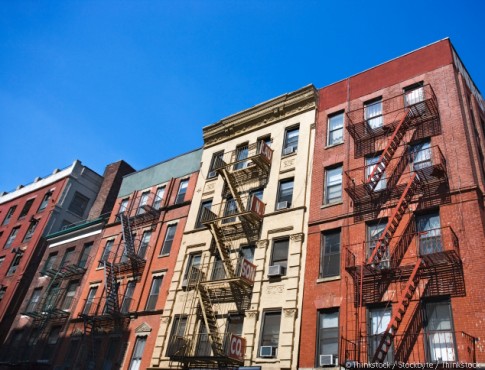 Rent controlled apartments are the four-leaf clovers of apartment life. Hiding among thousands of their fellows, they’re very hard to spot, and the finder of one is considered incredibly lucky. That’s because rent controlled apartments offer rent rate benefits to tenants that other apartments lack. Though the city best known for its rent controlled apartments is New York City, there are rent controlled properties in other U.S. cities like L.A., Washington D.C., and New Jersey.
Rent controlled apartments are the four-leaf clovers of apartment life. Hiding among thousands of their fellows, they’re very hard to spot, and the finder of one is considered incredibly lucky. That’s because rent controlled apartments offer rent rate benefits to tenants that other apartments lack. Though the city best known for its rent controlled apartments is New York City, there are rent controlled properties in other U.S. cities like L.A., Washington D.C., and New Jersey.
Confused about rent control rules? Here are the top 4 things that apartment hunters need to know about rent controlled apartment life.
What Is Rent Control, Anyway?
The concept of rent control is the result of a variety of U.S. legislative measures passed between the 1920s and 1970s. Rent control means that rent cannot be raised above the limit that was set when the rent control law went into effect. Thus, it acts as a price ceiling for rental properties to ensure that rates are not being raised unfairly. Sometimes landlords are able to raise the rate and remove the controls once the original tenant moves out, but these rules vary from property to property. Generally, rent controlled apartment prices remain the same indefinitely.
The Difference Between Rent Control and Rent Stabilization
Often when renters talk about rent control, the term “rent stabilization” is thrown around quite a bit, too. That’s because in some cities, the two terms mean the same thing. In others, however, rent stabilization means that a landlord can raise or lower the rate of an apartment in between tenants, but not during their stays. The guidelines for these practices may be established yearly by a board rather than individual landlords.
How to Tell If an Apartment Is Rent Controlled
Unfortunately, laws can vary depending on what year the apartment building was constructed and the area it is in. The easiest way to find out is to ask the landlord. However, if the landlord is unwilling be straightforward about the rate, check the area’s renting laws and find out.
So You Find a Rent Controlled Apartment. Now What?
If you do find a rent controlled apartment, your first instinct may be sign a lease before anyone else can snatch the unit away. But before you get out that pen, consider the following: Rent controlled apartments are sometimes the victims of poor upkeep. Because the property’s price is capped, and because there are sometimes legal difficulties concerning property improvement, the landlord may have little incentive to mind its upkeep. Additionally, landlords of these apartments may sometimes demand “key money” as a nonrefundable cash deposit. This is illegal in most places. Be sure to ask about additional fees when inquiring about the apartment.
In short, there are both ups and downs to opting for a rent controlled apartment. However, if you do your research beforehand and know the laws, living in your chosen rental unit can be pleasant for both your apartment life and your checkbook.



